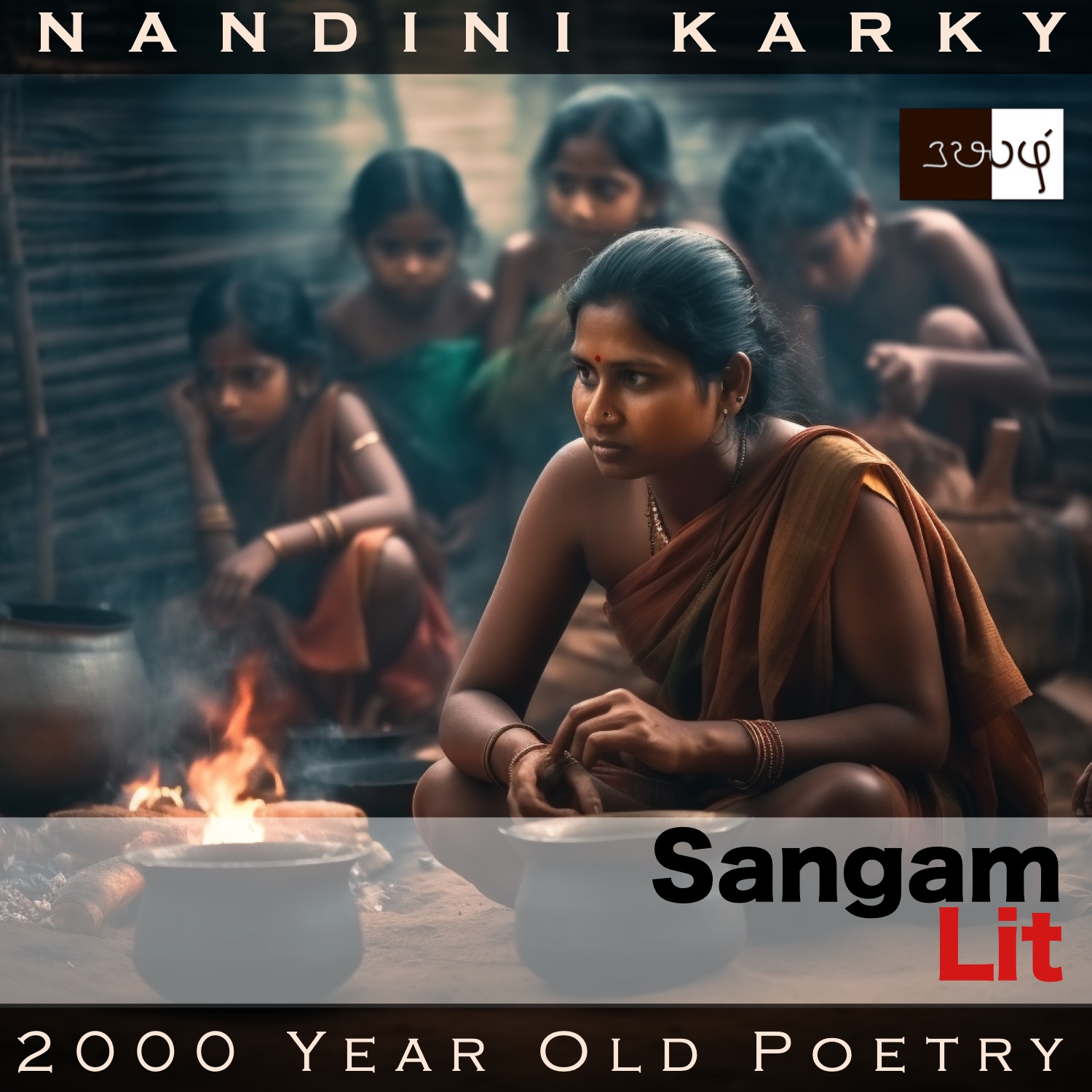Podcast: Play in new window | Download
Subscribe: Apple Podcasts | Spotify | Amazon Music | Android | iHeartRadio | TuneIn | RSS | More
In this episode, we listen to jubilant words of a supplicant, as depicted in Sangam Literary work, Puranaanooru 172, penned about the Velir King Pittankotran by the poet Vadama Vannakkan Thamotharanaar. The verse is situated in the category of ‘Paadaan Thinai’ or ‘Praise’ and reveals the worry-free life that a person who has won the favour of this king can live!

ஏற்றுக உலையே; ஆக்குக சோறே;
கள்ளும் குறைபடல் ஓம்புக; ஒள் இழைப்
பாடு வல் விறலியர் கோதையும் புனைக;
அன்னவை பிறவும் செய்க; என்னதூஉம்
பரியல் வேண்டா வரு பதம் நாடி,
ஐவனம் காவலர் பெய் தீ நந்தின்,
ஒளி திகழ் திருந்து மணி நளிஇருள் அகற்றும்
வன் புல நாடன், வய மான் பிட்டன்:
ஆர் அமர் கடக்கும் வேலும், அவன் இறை
மா வள் ஈகைக் கோதையும்,
மாறுகொள் மன்னரும், வாழியர் நெடிதே!
A song that resonates with exhilaration! The poet’s words can be translated as follows:
“Light the stove; Cook the rice; Make toddy unceasingly; Let singing maiden adorned with shining jewels wear garlands many; Do all such things; Let there be no worry about the food for tomorrow; If the fire lit by the millet guards fizzles out, then radiant, etched gems remove the deep darkness in the fertile mountain country of Pittan with speeding horses. May his spear that crosses great battles, and his lord, the infinitely generous Kothai, and even their enemy kings, live long!”
Taking a closer look at the verse, we see the poet speaking in the words of a bard, who is on top of the world, for this person is giving out commands at his home to start the stove and cook rice plenty and make toddy with no thought of economy. He also wishes for their companion artists, the dancing maiden, to adorn themselves with garlands. Do all such related things without a shred of worry about where tomorrow’s food is going to come, instructs this poet. Then, he goes on to talk about how even if a fire that was lit by guards of millet fields goes out, the glowing gems in that country can keep away the darkness, describes the poet. Through that, he etches the wealth and prosperity of Pittan’s country. The poet then blesses this king’s spear and another king Kothai, whom the poet mentions as the lord of this king, referring to the Chera ruler, in whose army this Velir King was a commander. But the most curious addition to this list of the blessed are the enemies of this king!
Why is the poet going against custom and wishing that the king’s enemies live long? It’s because only then can the king wage war on them and collect taxes from them, to make his land glow always, the poet implies. Yet again, we see the common notion to spend it all and worry not about the future for the king was there to render endlessly. Looks like all that the poets of then had to do was to find a ruler to support them and then they were all set! On a tangent, this makes me think that the Puranaanooru collection could be a directory of sorts for bards and poets to share to the community about which kings in ancient Tamil land were the generous ones, where supplicants were sure to hit a jackpot!




Share your thoughts...